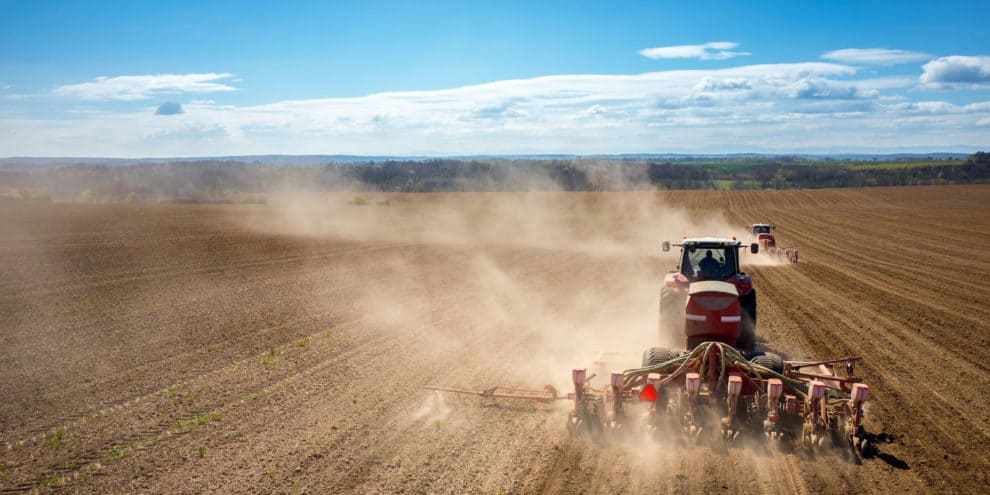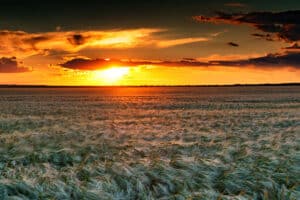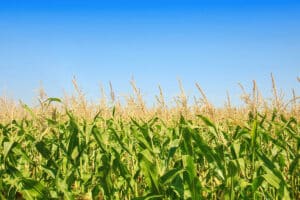There are several articles here on LANDTHINK about how to go about buying land in general. Many are geared towards residential building lots or recreational hunting land or timberland. Great resources but what if you are looking at buying farmland and you are not necessarily a farmer. Maybe you are a family member removed from the original homestead and you want to buy land back home or maybe you are an investor looking at this hot investing tool. Whatever the reason, it’s always best to try and get as much information as possible and sometimes a list can help. For this purpose we will consider the parcel to be at least 80% farmland that is tillable land and is producing a crop. Also, most questions end up leading to other questions so really this is a grouping of seven topics to consider before making an offer on farmland.
- Why are they selling? Is it rented or farmed by the owner? Does the farmer/tenant have a succession plan? Who farms/owns the adjoining land?
- Can I review Form 156 or other documents with the farmer or tenant and ask specific questions about the crop yields? If the answer is no, then at least make sure you can get copies of the relevant documents for the property such as FSA maps, government program payments or cash flow statements on the parcel. Ask how yields could be improved?
- Is mobile service available at the site? Is there any known GPS interference at the site? Where is the nearest elevator/coop and equipment service dealers? Are there any nearby suppliers of farming equipment? Ask questions that affect input costs.
- Is this entrance suitable for equipment? Is it wide enough? Is it fenced? If not, could hot wire be easily run for livestock grazing?
- Any yearly controlled burning in the area? Who? Where?
- Does property have any recreational value in non-tillable areas? Fishing or Hunting? If so, any leases and who has permission to access the property?
- Lucky Seven! The big question is one that will not really have an answer and basically depends on the luck of Mother Nature. However, you should try to find out as much as you can about the weather in the area. Depending on the location ask about flooding, drought or any other conditions that will affect the soil. Is it in tornado alley? Hurricanes? Mudslides? Find out averages for yearly moisture and temperatures.
These things may be seem basic but for example on Question #4 about the entrance. We had a piece of property where the farmers had to drive machinery several miles out of the way to get to the property because a bridge near the entrance to the property was not wide enough for equipment to pass over it. These issues contribute to overall profitability on individual parcels and should be considered if you are buying purely for return on investment (ROI). In addition to your own list of questions one of the best resources to use if you are buying agricultural land is the extension office. Go to USDA.gov to find local contacts.
This content may not be used or reproduced in any manner whatsoever, in part or in whole, without written permission of LANDTHINK. Use of this content without permission is a violation of federal copyright law. The articles, posts, comments, opinions and information provided by LANDTHINK are for informational and research purposes only and DOES NOT substitute or coincide with the advice of an attorney, accountant, real estate broker or any other licensed real estate professional. LANDTHINK strongly advises visitors and readers to seek their own professional guidance and advice related to buying, investing in or selling real estate.










Marisa, thank you for putting together a great list of questions to consider when buying farmland.
Andy…thanks for the comments. Sure enjoy your 1031 exchange info as well. Take care.
These are great questions…my wife and I have been looking for a farm tract for cows for quite some time. Problem is, before we can ask those seven questions, the price per acre costs make it nearly impossible to come out on paper. Any young person wanting to get into farming/agricutlure today will have no chance unless the land is handed down and then the estate taxes….washington doesn’t get it.
Chuck,
Thanks for the comments. I understand and that is a common problem. The Center for Rural Affairs has a page for resources for this http://www.cfra.org/resources/beginning_farmer that might help. Leasing first and trying to work out long term purchase plan with a landowner has been an option that has worked in one case. Good luck.